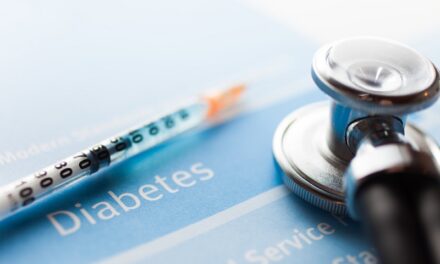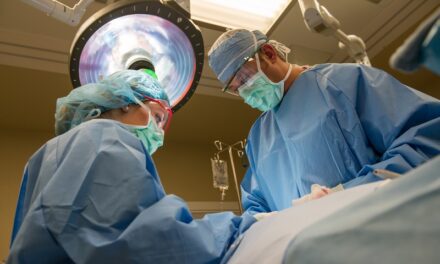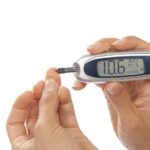Here you will know about heart diseases, their types, symptoms, causes, risk factors, diagnosis, treatment and prevention –
What is heart disease?
- Heart disease is one of the leading causes of death when we talk about the whole world.
- Heart disease can cause loss of life but in most people it is preventable.
- By adopting healthy lifestyle habits early in life, you can have a better life and a healthy heart.
How many types of heart disease are there?
Heart disease covers a wide range of cardiovascular problems. In which many diseases and conditions fall under the category of heart disease. Cardiovascular disease is known as a heart condition in which blood vessels are affected. (Learn – What is the difference between Bacterial vs Viral Infection)
Types of heart disease include:
- Arrhythmia – Abnormality of the heart beat is known as this condition.
- Heart Infection – Heart infection is caused by bacteria, virus, or parasite.
- Cardiomyopathy – Due to this condition the muscles of the heart develop hard or weak.
- Atherosclerosis – the hardening of Artrij is known as the condition.
- Congenital heart defect – A hole in the heart due to an abnormality in the heart at the time of birth.
- Coronary Artery Disease – This condition occurs due to the accumulation of plague in the arteries of the heart.
What are the symptoms of heart disease?
Symptoms may be different in different types of conditions –
Arrhythmia
- In this, the heartbeat is fast or slow, depending on its type.
- Dizziness
- Chest pain
- Fainting
- Slow pulse
- Head spin
Heart infection
- Chills
- Fever
- Cough
- Chest pain
- Skin rash
Cardiomyopathy
- Tiredness
- Stomach enlargement
- Rapid pulse
- Heel pain and swelling of the soles
Atherosclerosis
- In this the blood supply is greatly reduced.
- As well as chest pain
- Breathing problems
- Numbness of the extremities
- Pain
- Hand, leg weakness
Congenital heart defect
- Heart problems during the development of the baby in the womb are called congenital heart defects.
- Swelling up
- Blue skin
- Tiredness
- Low energy
- Respiratory distress
- Heartbeat abnormality
Coronary artery disease
- Chest pain and discomfort
- Shortness of breath
- Nausea
- Indigestion
- Gas
- Pressure on chest
What are the symptoms of heart disease in women?
- Especially with regard to coronary artery disease and other cardiovascular diseases, women often experience different signs and symptoms of heart disease than men.
- Symptoms of heart disease in women can also be confused with other conditions such as depression, menopause, and nervousness.
Common symptoms of heart disease in women are –
- Neck pain
- Jaw pain
- Back pain
- Fainting
- Dizziness
- Nervousness
- Shortness of breath
- Vomit
- Indigestion
- Cold sweating
- Nausea
- Yellowness
What are the causes of heart disease? – What causes heart disease in hindi
Heart disease is a collection of diseases and conditions that cause cardiac problems. Each type of heart disease is caused by something completely unique to that condition. Plague buildup in the arteries as a result of atherosclerosis and coronary artery disease. Apart from this, there are different reasons for different types of conditions –
Arrhythmia
- High blood pressure
- Medicines
- Supplement
- Coronary artery disease
- Drinking too much
- Excessive use of caffeine
- Diabetes
- Stress
- Nervousness
- Congenital heart hole
Heart infection
- Bacteria
- Parasites
- Virus
- It can harm the body if the treatment is not started on time.
Cardiomyopathy
- Hypertrophic cardiomyopathy – In this type of heart disease, the muscles of the heart become thin. In most cases it is genetic.
- Restrictive cardiomyopathy – The cause of this type of cardiomyopathy is not clear. In this the heart walls become hard. Possible causes could be scar tissue or abnormal protein buildup.
- Dilated cardiomyopathy – the cause of this type is not clear. In this the heart becomes weak. This can happen due to any previous damage to the heart like drugs, infection, heart attack, etc. Apart from this, it can also happen due to uncontrolled blood pressure levels.
Congenital heart defect
- It occurs when the baby is developing in the mother’s womb.
- Some heart holes can be serious, which can be diagnosed and treated early.
- While some are not diagnosed for many years.
- With age, the structure of your heart can also change.
- Due to which complications and problems may arise.
What are the risk factors of heart disease?
- High blood pressure
- Obesity
- Smoking
- High cholesterol level
- Not being physically active
People with diabetes have a higher risk of heart disease because high blood glucose levels increase the risk of:
- Coronary artery disease
- Stroke
- Heart attack
- Angina
Risk Factors You Cannot Control
- Sex
- Age
- Family history etc.
How is Heart Disease Diagnosed?
The doctor may ask you to get many types of tests done, so that heart disease can be diagnosed. Some tests may be done before you show signs of heart disease. While other tests are done to see the cause of developing symptoms.
Physical exam and blood test
- First of all, a physical examination will be done by the doctor in which the symptoms being experienced will be asked.
- After which your medical and disease related family history will be asked.
- Genetics play a very important role in heart diseases.
- Regular blood tests are necessary to look for signs of inflammation and cholesterol levels.
Non-invasive test
- Carotid ultrasound
- Stress test
- Echo
- ECG
- CT scan
- MRI of the heart
- Tilt table test
- Holter monitor
Invasive test
- Coronary angiography
- Cardiac catheterization
- Electrophysiology studies
What treatments are available for heart disease?
The treatment for heart disease largely depends on the type of heart disease as well as how advanced it is. For example, if you have a heart infection, your doctor is likely to prescribe antibiotics.
If you have plaque buildup, they may take a two-pronged approach — prescribe a medication that can help reduce your risk for excess plaque buildup and look to help you adopt healthy lifestyle changes. Is. (Learn about the side effects of antibiotics)
Its treatment can be divided into three categories –
Medicines
- Medication may be necessary to treat some types of heart disease.
- Your doctor can prescribe medicine which can either cure or control your heart disease.
- Medicines may also be prescribed to slow down or prevent the risk of complications.
Lifestyle changes
- Heart disease can be prevented with the help of healthy lifestyle changes.
- This can prevent the condition from getting worse.
- First of all, it is necessary to change the diet.
- Complications of heart disease can be reduced by consuming fruits and vegetables in addition to low sodium diet, low fat diet.
- Apart from this, regular exercise, not using tobacco, avoiding alcohol consumption helps.
Surgery
- In some cases heart surgery is needed to prevent the symptoms from getting worse.
- Plague buildup is the cause of artery blockage, in such cases insertion of a stent by the doctor helps in maintaining regular blood flow.
- The goal of having this is to protect the heart from any other damage.
How can I prevent heart disease?
Some risk factors of heart disease cannot be controlled like family history etc. But it can be controlled in the following ways –
Manage stress
- Chronic stress is known to be one of the causes of heart disease.
- Managing stress can reduce the risk of heart disease.
- There can be many reasons for nervousness or stress, so if needed, you can consult a doctor.
Healthy lifestyle
- Exercising regularly and taking a healthy diet are beneficial.
- Foods with high saturated fat and salt should be avoided.
- At least 30 to 60 minutes of exercise should be done daily.
- Smokers should stop it.
Healthy BP and cholesterol level
- One of the first steps in keeping the heart healthy is keeping blood pressure and cholesterol levels in check.
- Cholesterol levels depend on the health history of our heart.
- Apart from this, the risk increases in cases of diabetes or heart attack.
Are Lifestyle Changes Necessary for Heart Disease?
If you have recently been diagnosed with heart disease, talk to your doctor about the changes needed to stay healthy. In the changes in daily life, definitely ask questions on the following topics –
- Medicines you are taking
- Any special diet
- History of high blood pressure or diabetes
- Family history of heart disease or stroke
- Regular exercise
- Dizziness
- Fast heartbeat
- Low energy
The following tips can be given by the doctor –
- Controlling blood pressure
- Regular exercise
- Eating healthy
- Lose weight with obesity
- Stop smoking
- Maintain healthy cholesterol
What is the relation between heart disease and hypertension?
- Hypertensive heart disease is caused by chronic high blood pressure.
- Hypertension requires your heart to pump harder to circulate your blood through your body.
- This increased pressure can lead to many types of heart problems.
- Including a thickened, enlarged heart muscle and narrowed arteries.
- After which additional force has to be used to pump blood to the heart.
- Due to which the muscles of your heart become hard and thick.
- It can affect how well your heart pumps.
- Hypertensive heart disease can make the arteries less elastic and more rigid.
- This can slow down the blood circulation and prevent your body from receiving oxygen-rich blood. (Learn – what are the blood-purifying foods)
- Hypertensive heart disease is the most prominent cause for people suffering from high blood pressure.
- That’s why it is important that you start treating high blood pressure as soon as possible.
- Treatment can prevent complications and possibly prevent additional damage.
Is there any treatment for heart disease?
Heart disease cannot be treated or reversed. It requires lifelong treatment and monitoring. Many of its symptoms can be treated with medicines, procedures, and lifestyle changes. Failure of these methods may require coronary or bypass surgery.
(Learn what are low calorie foods)
If you feel any kind of symptoms of heart related disease, you should consult a doctor. After which he can get tests etc. to find out and can advise you to stay healthy.
References –
- https://nhlbi.nih.gov/health-topics/coronary-heart-disease
- https://www.niddk.nih.gov/health-information/diabetes/overview/preventing-problems/heart-disease-stroke
- https://www.heart.org/en/health-topics/cardiomyopathy/what-is-cardiomyopathy-in-adults/dilated-cardiomyopathy-dcm
- https://medlineplus.gov/heartdiseases.html
- https://www.cdc.gov/heartdisease/about.htm
- https://www.mayoclinic.org/diseases-conditions/heart-disease/symptoms-causes/syc-20353118






















 English
English हिन्दी
हिन्दी








